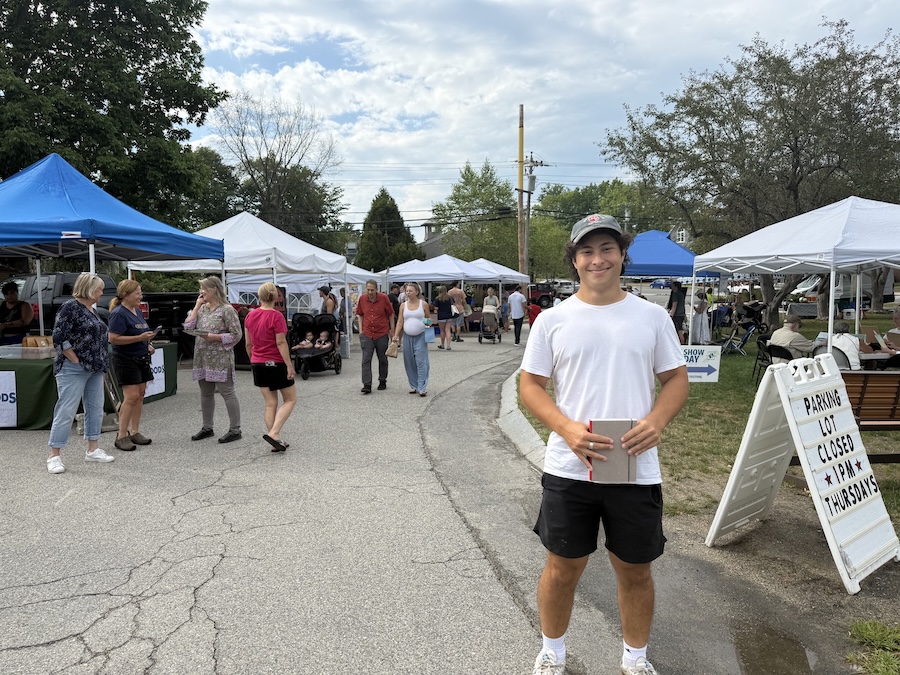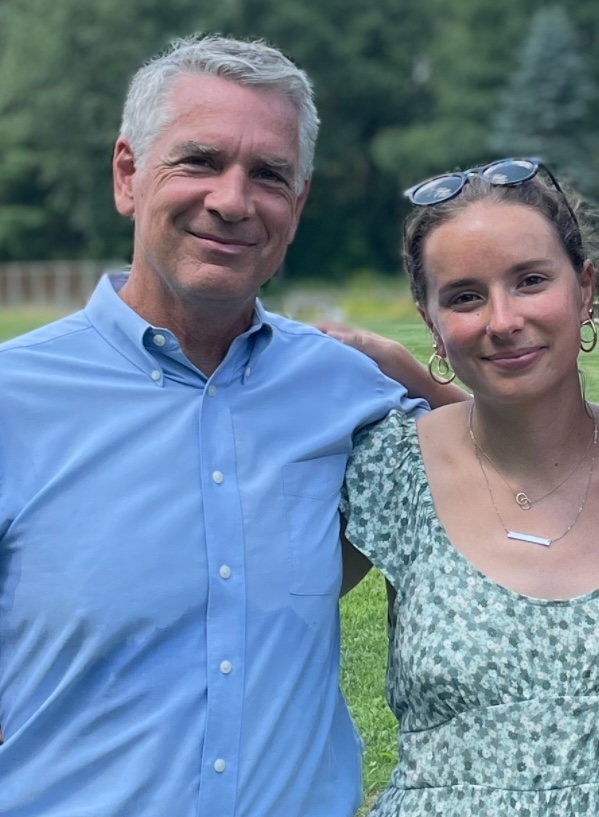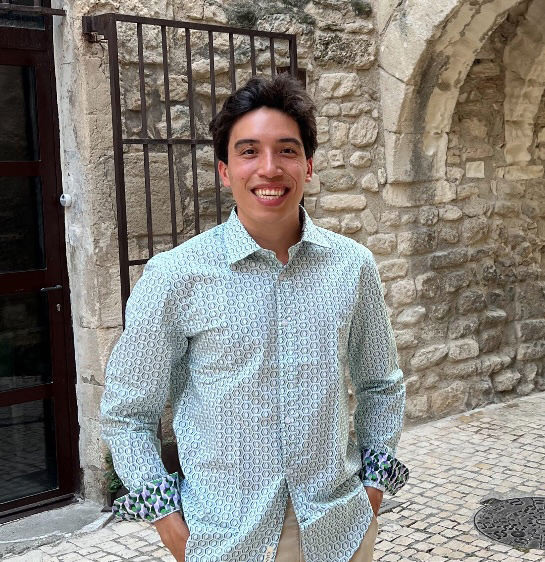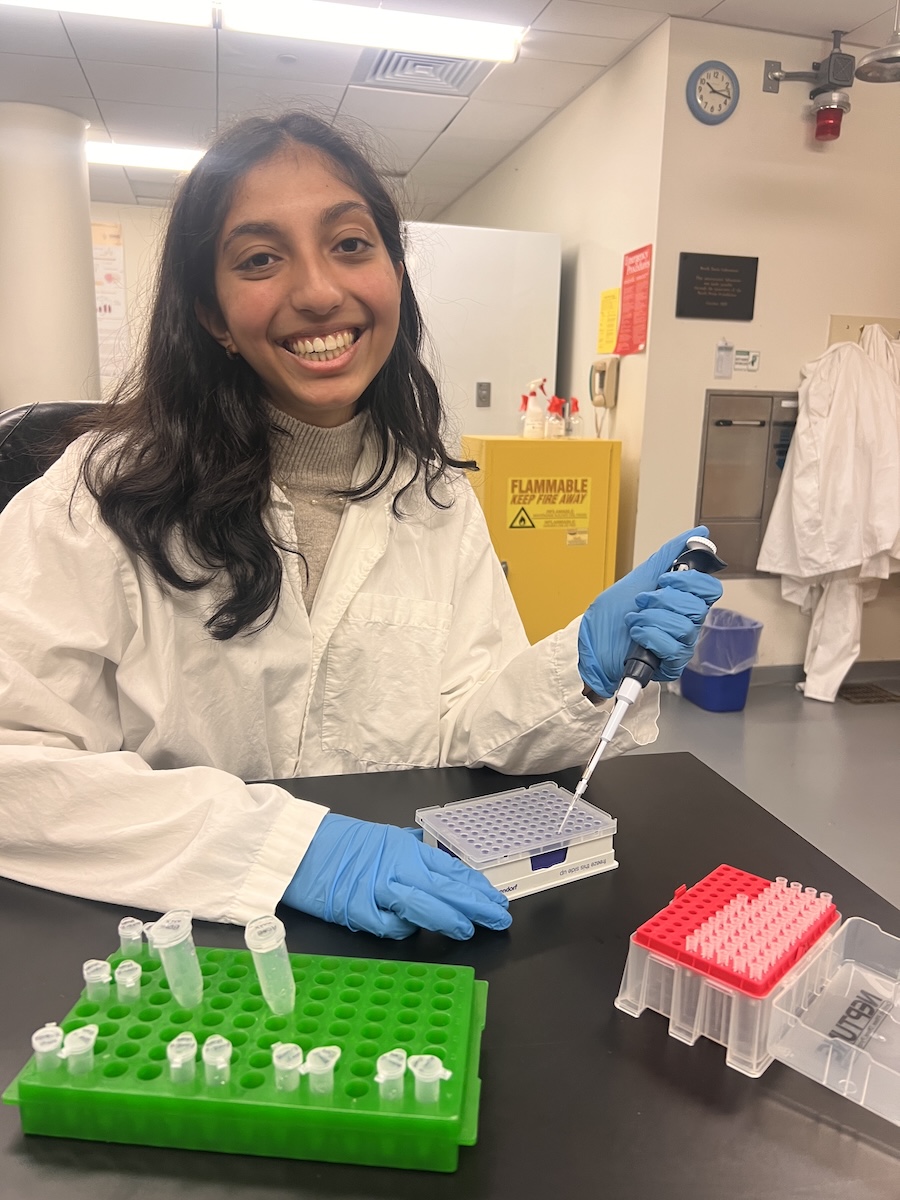The Gifts and Challenges of Interning with "2e" Kids
By Rebecca Goldfine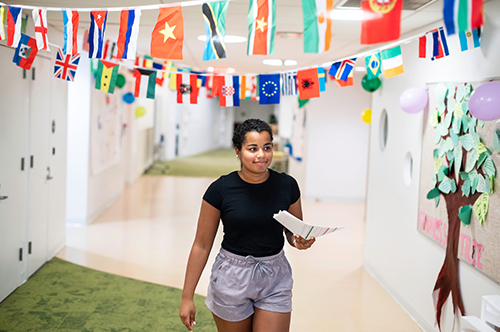
At The Quad Manhattan, a nonprofit that provides enrichment programs for 2e kids, Kelsey worked with a small group of eleven- and twelve-year-old kids to help them develop the skills they need to succeed at school and form positive relationships.
Her New York City position was supported through Bowdoin's Peter Buck Internship Fund. The Buck Award is one of nearly 100 grants that Bowdoin offers students, enabling them to accept unpaid positions that help refine and often advance their career aspirations.
The Quad Manhattan runs an after-school program during the academic year and an intensive camp during the summer. Some of the children who attend are on the autism spectrum, while others have attention deficit disorder or other diagnoses. Though 2e kids are often intellectually or artistically gifted, they can struggle with learning, speech impairments, social anxiety, or emotional control.
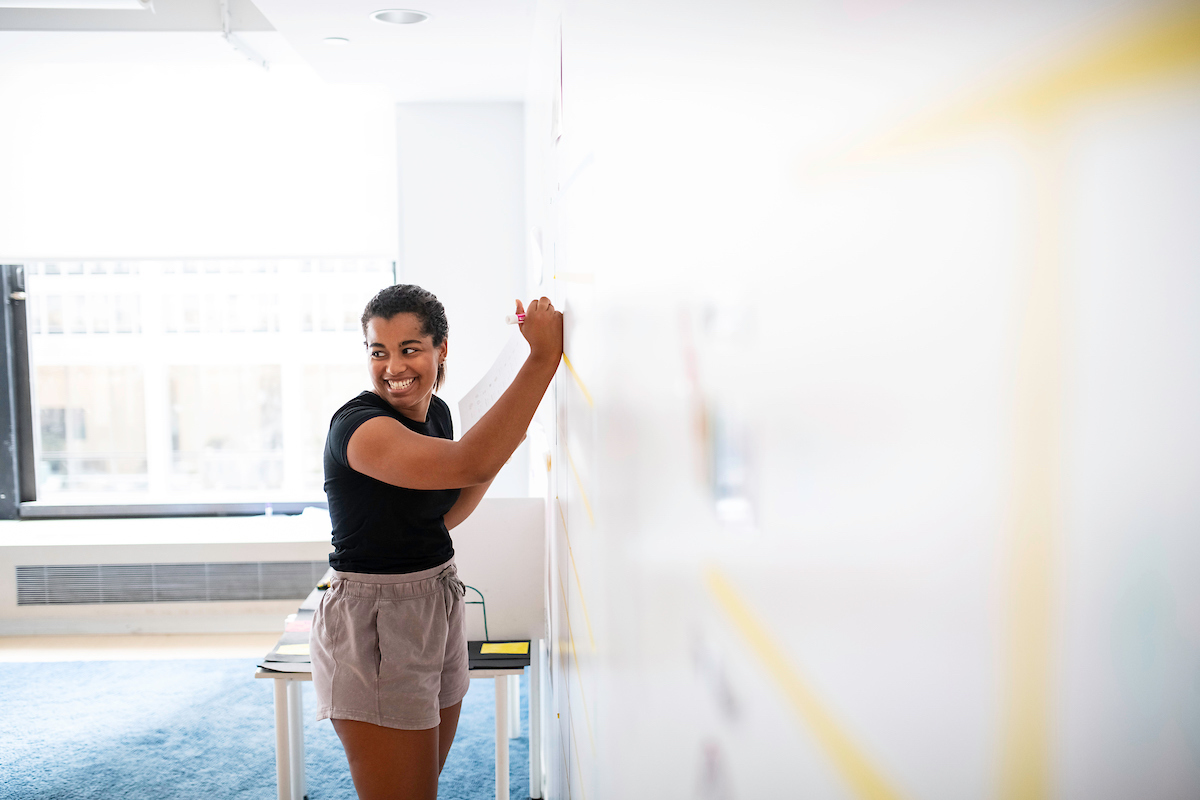
As an intern co-teaching lessons and leading activities alongside a professional instructor and other interns, Kelsey found herself at times guiding a student through his or her frustrations (using the Collaborative Problem Solving approach). "First you emphasize, then you define the problem, then you brainstorm solutions or compromises, and finally, you recap the whole process," she said—a helpful strategy for negotiating conflict or offering counsel in any relationship, really. "We did this constantly."
Her sport of diving, which she took up at age seven—and the hours she has spent as a swim and diving coach, especially working with young children terrified of water—has made her appreciate the power of the mind. "Diving is the most mental sport there is," she said.
Kelsey pursued the internship because she's interested in a career working with children who have mental health issues. "My little brother has battled a lot of things growing up," she said. "And I have seen the ways his mental health providers have saved his and other kids' lives."
She noted that it can sometimes be easy to overlook the specter of mental illness in younger children. "I know people talk a lot about mental health in high school and college, but people forget that little kids can also have these struggles."
Some of the greatest moments of her summer, she said, were when she could celebrate a child's breakthrough, no matter how small. She described one boy who easily slipped into negativity and self-deprecation. But the sky opened for him on the last day of camp, when he was asked to read in front of everyone a list of daily goals he'd achieved.
"He said, 'Wow, I did all these things this summer!" Kelsey recalled. "Sometimes it can feel like the things you're doing aren't making a difference, but every little thing you do is helping."
